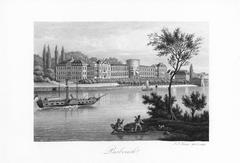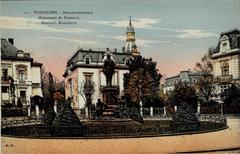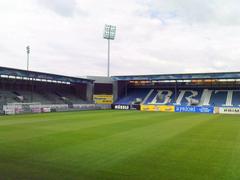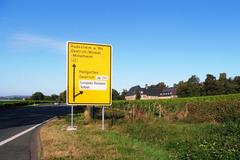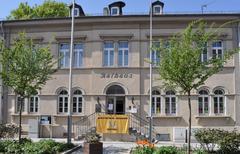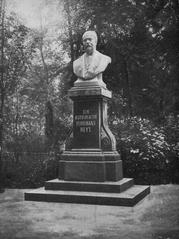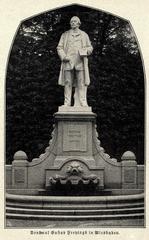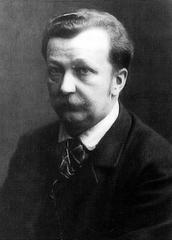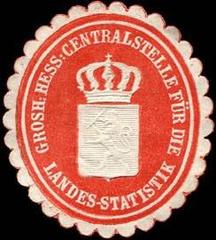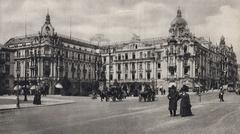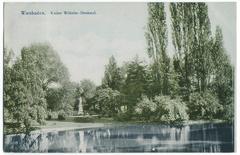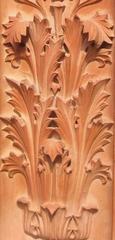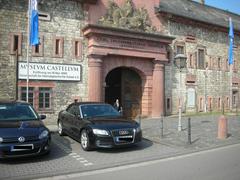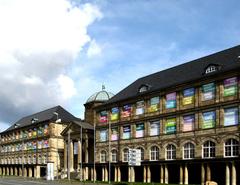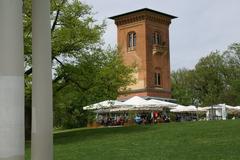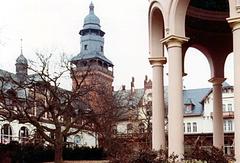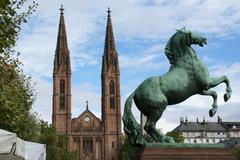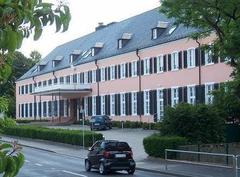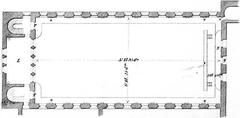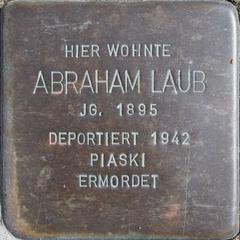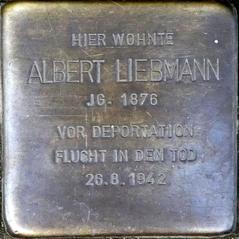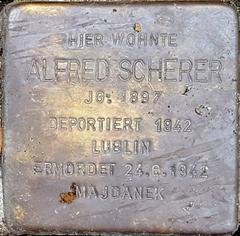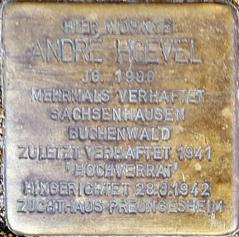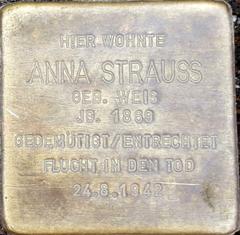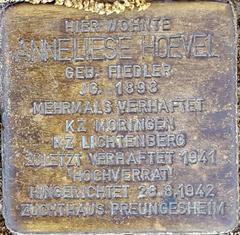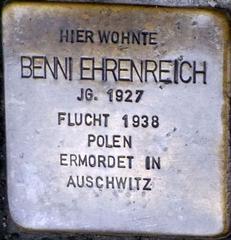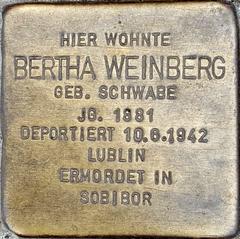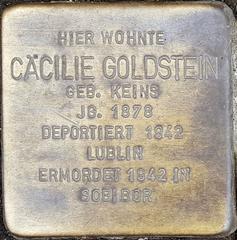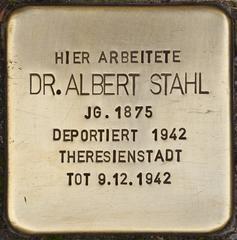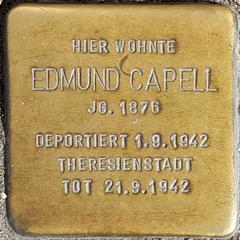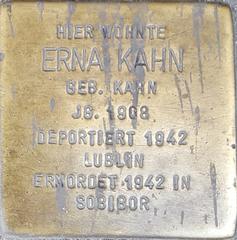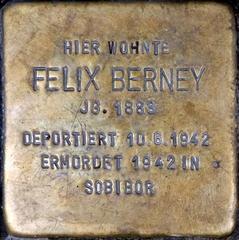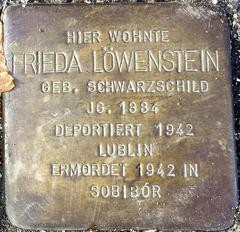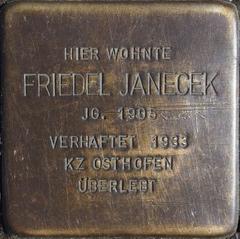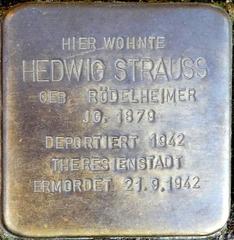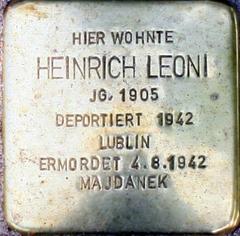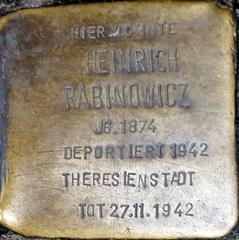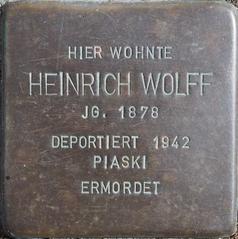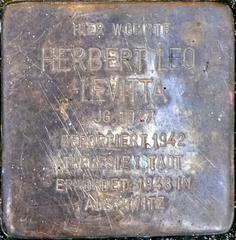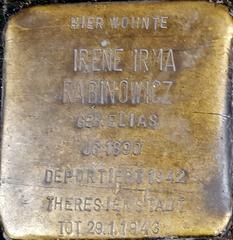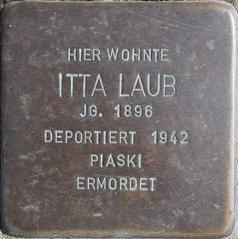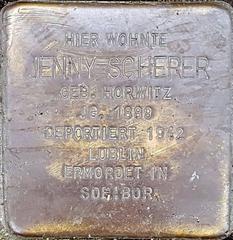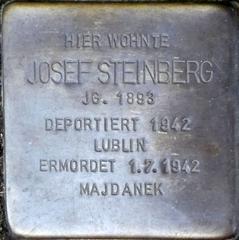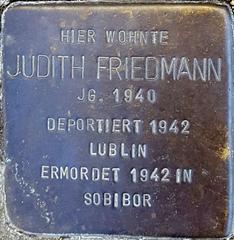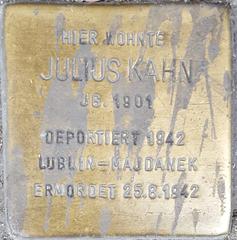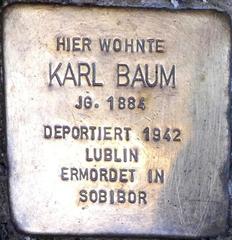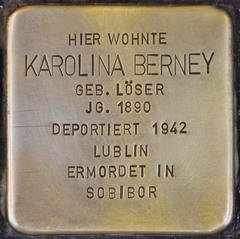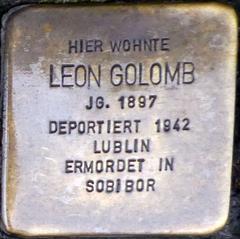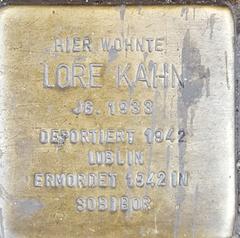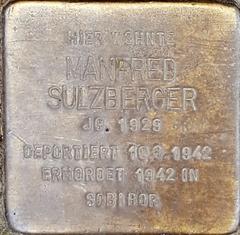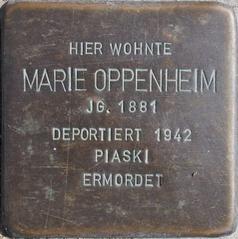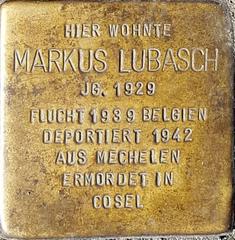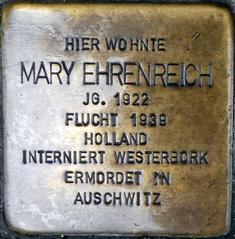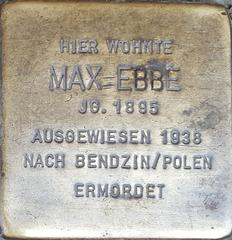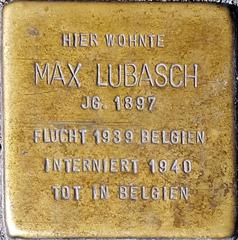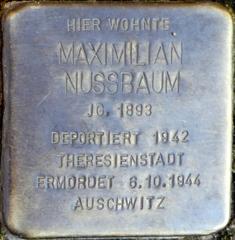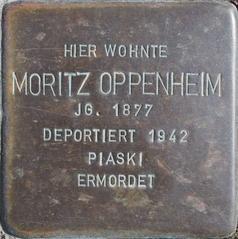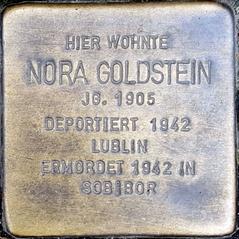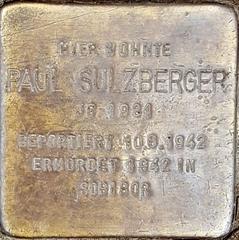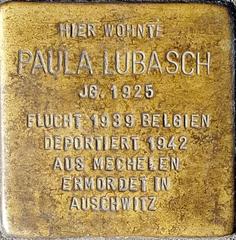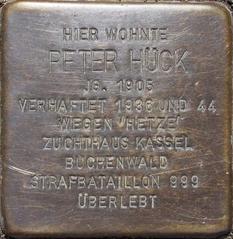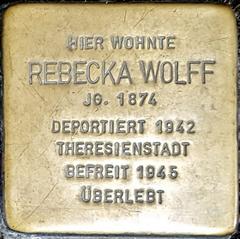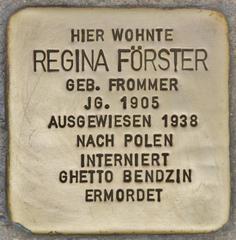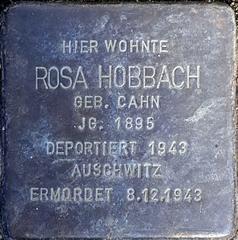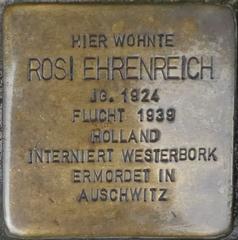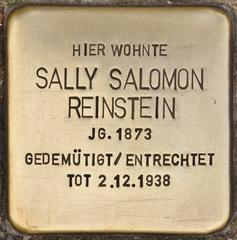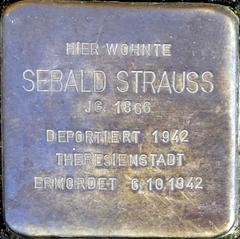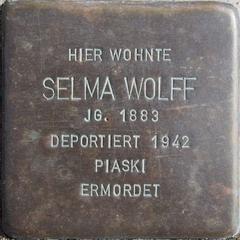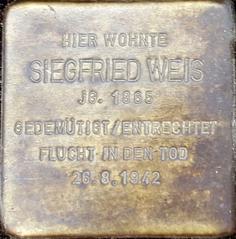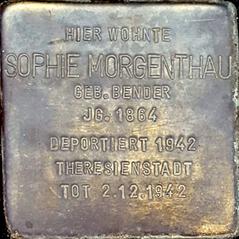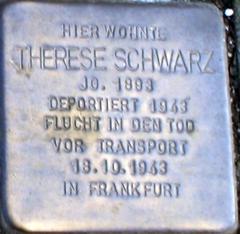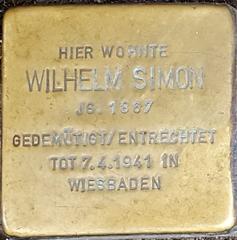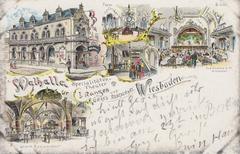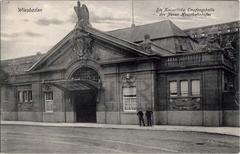German Film Archive Wiesbaden: Visiting Hours, Tickets, and Historical Significance
Date: 04/07/2025
Introduction
The German Film Archive in Wiesbaden is a cornerstone of Germany’s cinematic legacy, providing unparalleled access to the nation’s rich film history. Managed by the Friedrich Wilhelm Murnau Foundation, the archive is dedicated to preserving, restoring, and showcasing German cinema’s most significant works. This comprehensive guide covers everything you need to know about planning your visit — from opening hours and ticketing to accessibility and nearby attractions — while delving into the archive’s vital role in Germany’s cultural heritage.
About the German Film Archive in Wiesbaden
Origins and Foundation
The roots of the German Film Archive trace back to 1966, when the Friedrich Wilhelm Murnau Foundation was established to prevent the dispersal of classic German film works overseas. Named after the acclaimed silent film director Friedrich Wilhelm Murnau, the foundation’s mission was to centralize, preserve, and celebrate Germany’s cinematic output. The archive, strategically located in Wiesbaden, has become a national and international hub for film preservation and research (Friedrich Wilhelm Murnau Foundation).
The Archive’s Extensive Collection
The archive holds over 6,000 films, ranging from the late 19th century through the early 1960s. Its holdings include approximately 2,000 silent films, 1,000 sound films, and around 3,000 short films, commercials, and documentaries. Masterpieces such as Fritz Lang’s Metropolis (1927) and Robert Wiene’s The Cabinet of Dr. Caligari (1920) are preserved here, as well as a substantial portion of Germany’s controversial Nazi-era “Vorbehaltsfilme” (reserved films), accessible strictly for research and educational purposes.
German Cinema Through the Ages
The collection documents the evolution of German cinema, from pioneering works by Max Skladanowsky and the artistic heights of Weimar Expressionism, through the propaganda of the Nazi era, to the resurgence of New German Cinema in the postwar years. The archive provides invaluable insights into the works of legendary directors like Fritz Lang, Ernst Lubitsch, Detlef Sierck, Helmut Käutner, and Rainer Werner Fassbinder.
Planning Your Visit: Hours, Tickets, and Accessibility
Visiting Hours
- Tuesday – Saturday: 10:00 AM – 5:00 PM
- Sunday, Monday: Closed
- Note: Hours may vary during holidays or special events. Always consult the official website for updates.
Tickets and Admission
- Permanent Exhibitions: €8 (reduced €5)
- Special Exhibitions: €12 (reduced €9)
- Children & Under 18: Free
- Groups (15+): €5 (permanent), €9 (special)
- Free Admission: First Saturday of every month (“Free Saturday”)
- Tickets can be purchased in advance via the Museum Wiesbaden Ticket Shop.
Accessibility
- Fully barrier-free entrances and elevators
- Wheelchair loans and accessible restrooms
- Induction loop system for hearing aids in the lecture hall
- Assistance is available upon request
Guided Tours and Special Events
Guided tours provide deeper insights into both the film archive and related exhibitions. Tours are available in several languages and can be booked for individuals or groups. The Murnau Filmtheater hosts regular screenings, retrospectives, and panel discussions, enriching the visitor experience.
Exploring Wiesbaden: Nearby Historical Sites
Wiesbaden’s rich cultural landscape complements your archive visit. Notable attractions include:
- Kurhaus: An iconic neoclassical spa and event complex (Kurhaus Wiesbaden)
- Nerobergbahn: A historic funicular railway offering panoramic city views
- Wilhelmstrasse: A grand boulevard lined with elegant architecture
- Altstadt (Old Town) & Goldgasse: Picturesque streets with shops and cafes
- Hessian State Theatre: Venue for performances and film-related events
Wiesbaden also hosts annual festivals, such as the International May Festival and the Rheingau Wine Festival, often featuring film elements (Germany Travel: Wiesbaden).
Preservation and Public Engagement
The archive’s commitment to preservation is evident in its ongoing restoration and digitization projects, including the acclaimed restorations of Metropolis and The Cabinet of Dr. Caligari. The Murnau Filmtheater, located within the Film House, offers an authentic cinema experience, screening both restored classics and contemporary films. The annual Murnau Short Film Prize highlights emerging talents in German filmmaking.
Facilities and Visitor Services
- Museum Café: Open Tuesday–Sunday, serving refreshments
- Free WiFi: Available throughout the museum
- Checkroom & Lockers: Secure storage for belongings
- Family Amenities: Accessible restrooms and changing tables
- Museum App: Free download for navigation, event info, and interactive exhibits
How to Get There
Address: Friedrich-Ebert-Allee 2, 65185 Wiesbaden
- By Train: 10-minute walk from Wiesbaden Hauptbahnhof
- By Public Transit: Bus stops at Rheinstraße and Wilhelmstraße
- By Car: Parking available at RMCC garage or along Friedrich-Ebert-Allee
- On Foot: The museum is centrally located, close to major city landmarks
Visitor Tips
- Plan ahead and book tickets online, especially for popular events or the “Free Saturday”
- Allow 2–3 hours for a full experience, including exhibitions and screenings
- Combine your visit with nearby museums or historical sites for a culturally immersive day
Frequently Asked Questions (FAQ)
Q: What are the German Film Archive visiting hours?
A: Tuesday to Saturday, 10:00 AM – 5:00 PM. Closed Sundays and Mondays.
Q: How can I buy tickets?
A: Tickets are available online via the Museum Wiesbaden Ticket Shop or at the museum entrance.
Q: Is the archive accessible for visitors with disabilities?
A: Yes, with barrier-free access, loan equipment, and accessible facilities.
Q: Are guided tours available?
A: Yes, both public and private tours can be booked in advance.
Q: What attractions are nearby?
A: The Kurhaus, Nerobergbahn, Wilhelmstrasse, and Wiesbaden’s Old Town are all close by.
Visual and Interactive Resources
Enhance your visit by exploring virtual tours, viewing high-quality images of the archive, and using the museum’s interactive app. Visual highlights include original film reels, vintage posters, and restored film clips on display in the exhibition halls.
Conclusion
The German Film Archive in Wiesbaden is not just a repository of cinematic treasures but a living institution that bridges Germany’s film history with contemporary audiences. With its accessible facilities, engaging exhibitions, and proximity to Wiesbaden’s historic sites, the archive should be on every film lover’s itinerary. For current information on hours, tickets, and events, consult the official Friedrich Wilhelm Murnau Foundation and Museum Wiesbaden websites.
Plan your visit today and immerse yourself in the legacy of German cinema!
Contact and Further Information
-
Museum Wiesbaden (German Film Archive events and exhibitions):
- Address: Friedrich-Ebert-Allee 2, 65185 Wiesbaden
- Phone: +49 611 335 2250
- Website: Museum Wiesbaden
- Email for guided tours: [email protected]
-
German Film Archive (archival inquiries):
For up-to-date details on exhibitions and events, consult the Museum Wiesbaden events calendar and Wiesbaden festival listings.
